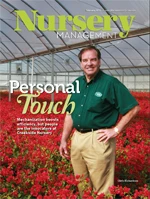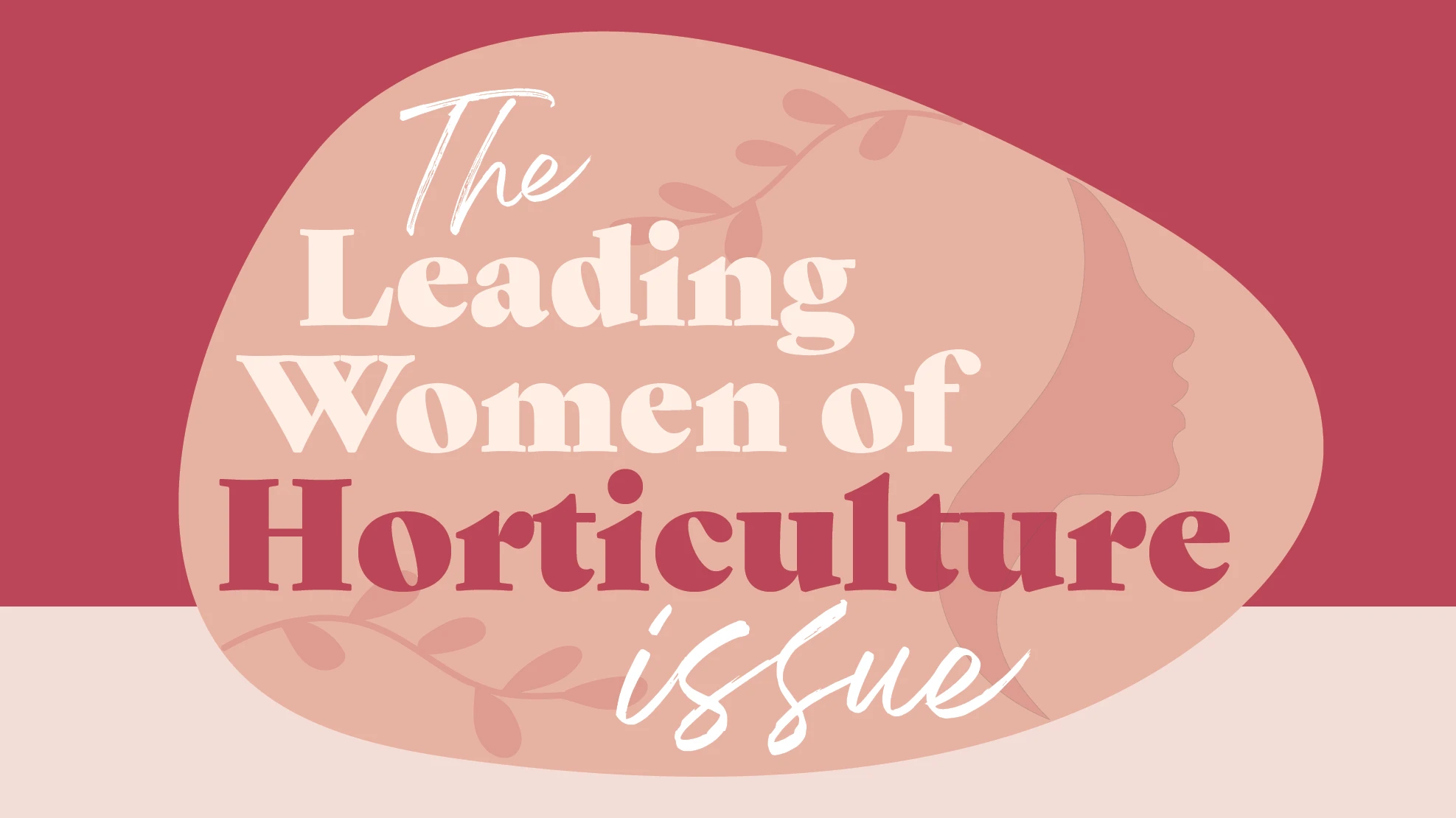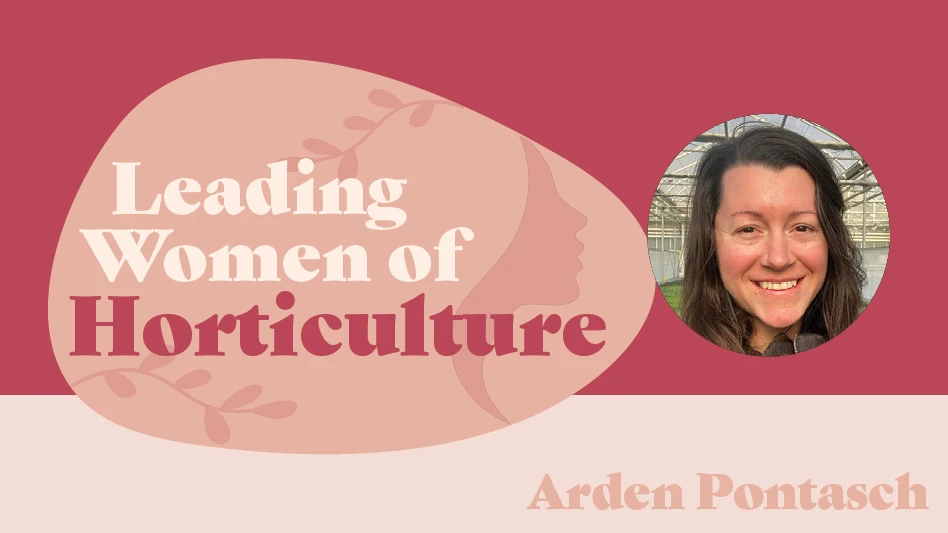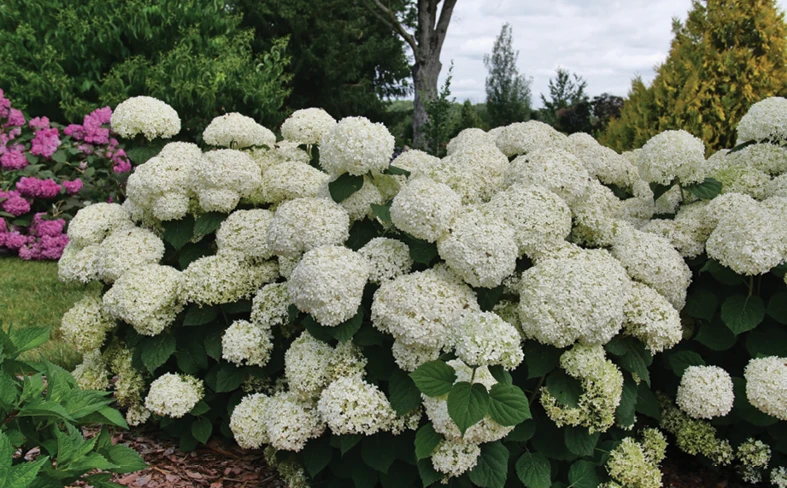|
 Christine Hetz Phillips helps lead Fairview Evergreen Nurseries, a company her grandfather Frank C. Hetz founded 100 years ago. Photos courtesy of Jerney Studios and Fairview Evergreen Nurseries.What started as a family outing to pick a Christmas tree more than a century ago, turned into a new way of life for the Hetz family in Erie County, Pa. Christine Hetz Phillips helps lead Fairview Evergreen Nurseries, a company her grandfather Frank C. Hetz founded 100 years ago. Photos courtesy of Jerney Studios and Fairview Evergreen Nurseries.What started as a family outing to pick a Christmas tree more than a century ago, turned into a new way of life for the Hetz family in Erie County, Pa.
Frank C. Hetz had been a house painter for 15 years, which supported his family – wife Mary and their four children. But Frank’s health was deteriorating, and a doctor suggested he find a new profession. He considered farming. After all, he’d grown up on a farm. In 1909 he took his daughter Mildred shopping for a Christmas tree.
According to Hetz family history, Frank was impressed with the retail price of the trees – up to $1. If he could sell a few thousand of these trees each year, he could provide a good life for his family.
Decades at a glance
He borrowed $20,000 and purchased 36 acres of land in Fairview, Pa. He planted spruce, fir and pine seeds at his home in Erie, and prepped his new land in Fairview for nursery production and his new business, Fairview Evergreen Nursery (FEN).
Frank sold vegetables, berries and maple syrup, and raised chickens and cows to make ends meet. By 1917, the first of his Christmas trees were ready to sell.
“The timing coincided with the end of World War I, and there was suddenly a shortage of ornamental evergreens,” said Christine Hetz Phillips, one of 11 family shareholders. “So sales escalated to provide homeowners with evergreens for their homes.”
In 1921, sales were strong and the nursery expanded to keep up with demand. By 1928, Frank formed a partnership with his four older children, Mildred, Charles, Leroy and Clifford.
When the Great Depression hit, FEN grew “everything that might possibly sell – evergreens, trees, flowers, vines, even fruit trees,” according to Garth Hetz, FEN president from 1975-2002. “Fortunately the business had been out of debt for many years, so although sales were not great, the business survived.”
 1940s and ‘50s 1940s and ‘50s
FEN experienced a labor shortage once the U.S. entered World War II. The nursery’s workforce was cut in half, so FEN hired migrant workers from Puerto Rico. And to maximize efficiency, FEN purchased or fabricated more production equipment. In 1948, FEN built the first root-pruner for the row crops of landscape-sized evergreens, according to Garth.
WWII also spurred the nursery to streamline its product mix and increase production.
The 1950s marked a change in ownership after the deaths of Charles Hetz in 1952 and Frank in 1954. The third generation was working full time at the nursery by the late ‘50s.
1960s through today
In 1961, 50 years after Frank founded the nursery, the family shareholders formed a corporation – Fairview Evergreen Nurseries Inc. By the early ’70s, eight third-generation, shareholder employees were active in the company.
The second and third generations didn’t always agree on business matters.
The second generation was used to working six days a week, ten hours a day, Garth said.
“The third generation had to fight hard for ‘perks’ like taking Saturday afternoons off in the summer,” Garth recalled.
The ’70s were a time of progressive growth for the company. New land expanded production, new machines increased harvesting and the interstate highway system enabled FEN to easily ship plants to new markets.
More land was purchased and more family members joined the company in the 1980s. By the 1990s, FEN owned more than 3,000 acres. The year 2000 marked a record sales year for the nursery. And in 2008, FEN began construction on a container growing facility.
Diversified stock
Today FEN sells B&B, bareroot and containerized ornamentals, including taxus, junipers, arborvitae, boxwood, holly, burning bush, viburnums, flowering shrubs and shade trees. B&B evergreens and deciduous plants range from 15 inches up to 3 feet or larger; arborvitae and junipers up to 8 feet; containers in primarily 3-, 5- and 7-gallon sizes; and bareroot transplants and seedlings from 6-18 inches. B&B and bareroot shade trees are harvested beginning at 1½ -inch up to 4-inch caliper or larger.
“All plants are root pruned for dense, fibrous root growth,” said Hagan Hetz, one of the family shareholders.
Most cuttings are stuck in the greenhouses each fall and come out in spring as rooted cuttings. The cuttings are then trimmed and root pruned by hand before they’re lined out in a five-row system. Plants are root pruned mechanically in the five-row spacing and the field-row spacing.
The nursery’s new 60-acre container growing facility will allow FEN to increase its competitiveness in the retail market, he said. Marketing the container plants to the garden centers is extremely important, Christine said.
“When 70 percent of consumers are women, they prefer to pick up a container plant, not a 70-pound balled and burlapped one,” she said.
Sustainable practices
FEN maintains a herd of beef cattle — what Christine calls a living fertilizer factory. The manure enhances the organic content of the soil and benefits the newly transplanted nursery crops. Once a crop is dug, the field is rested for at least five years. FEN plants grains, including corn, which is fed to the cattle.
FEN uses an integrated pest management approach and employs cultural, mechanical and biological controls wherever possible, Christine said. The nursery also accepts green waste, which is processed and aged for 18 months before tilling it into the fields.
The sustainable activities at the nursery refelcts how the company leaders feel about their product.
“Plants and trees act as a natural filtration system, reducing air pollution. They’re vital to stormwater management. They boost real estate values. They lower heating and cooling costs,” Christine said.
For more: www.fairviewevergreen.com.

|


 1940s and ‘50s
1940s and ‘50s







